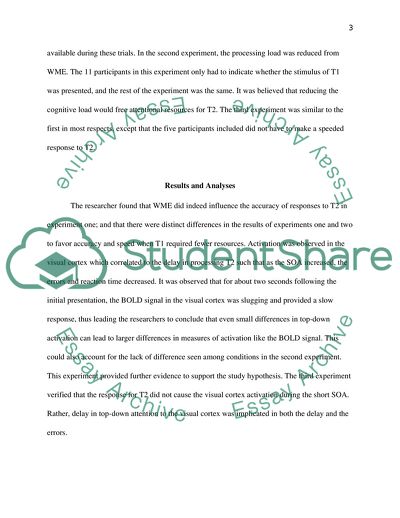Working Memory Encoding Delays Top-Down Sensory Processing in the Extr Research Paper. https://studentshare.org/biology/1786659-summarising
Working Memory Encoding Delays Top-Down Sensory Processing in the Extr Research Paper. https://studentshare.org/biology/1786659-summarising.


